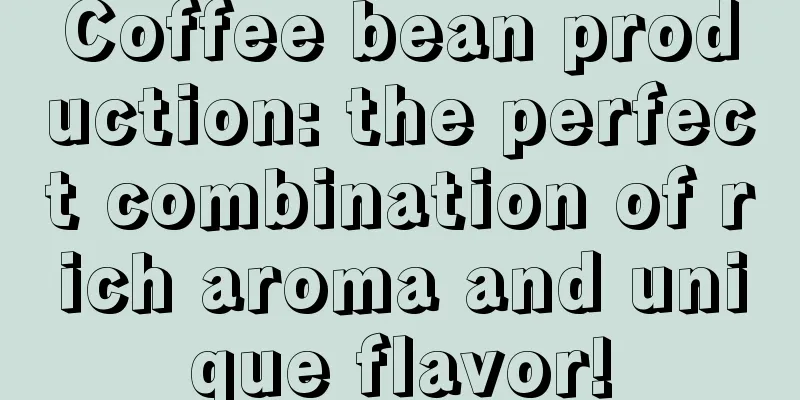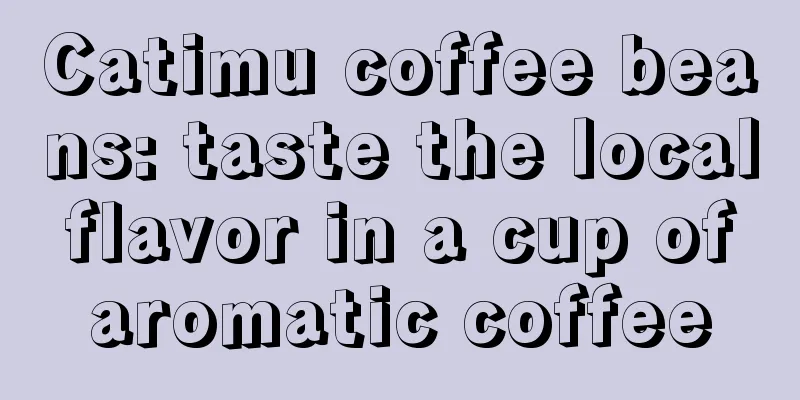Comparing decaffeination methods: Which is best?

Comparison of caffeine removal methodsCaffeine is a common neurostimulant found in many beverages, especially coffee. However, some people are allergic to caffeine or feel uncomfortable with its stimulant properties. To meet the needs of this group of people, various methods of decaffeination have emerged on the market. This article will compare several common methods of decaffeination and explore which one is the best. 1. Water washing methodThe washed method is one of the most traditional and oldest methods of decaffeination. It removes the substances attached to the surface of the beans and most of the soluble substances, including caffeine, by soaking the unripe roasted beans in water. The beans are then rinsed with clean water to remove the residual substances, and then dried and roasted. Pros: The washing method effectively removes most of the caffeine without affecting other flavor compounds. Disadvantages: This method requires large amounts of water and creates wastewater disposal problems. 2. Carbon dioxide methodThe CO2 method is a commonly used industrial decaffeination method. It uses high-pressure CO2 to dissolve the caffeine in coffee beans, and then reduces the pressure to remove the caffeine in the solution from the beans. Finally, the CO2 is recovered and reused. Advantages: The carbon dioxide method can precisely control the degree of caffeine removal without significantly affecting other flavor substances. Disadvantages: This method requires specialized equipment and technology and is costly. 3. Organic solvent methodAnother common method of decaffeination is the organic solvent method, which uses an organic solvent (such as ethyl acetate) to extract the caffeine from the beans, and then separates the solvent from the caffeine by distillation or other means. Advantages: The organic solvent method can effectively remove most of the caffeine and is relatively low cost. Disadvantages: Due to the use of organic solvents, it may cause pollution to the environment and may leave some residues in the final product. 4. Swiss WashThe Swiss Wash process is a relatively new decaffeination method. It combines the advantages of the washed and CO2 processes, using green coffee bean extract to remove caffeine. This extract is made from natural ingredients and does not pollute the environment. Pros: Swiss-process coffee is effective at removing caffeine without any negative impact on the environment. Disadvantages: This method requires specialized equipment and techniques and may leave some residue in the final product. in conclusionIn summary, each decaking method has its advantages and disadvantages. If you pursue purity and efficiency, the carbon dioxide method is a good choice; if you pay attention to environmental protection and sustainable development, you can consider the Swiss water washing method; and if you want simplicity, economy and good results, you can choose the traditional water washing or organic solvent method. The best decaking method should be determined based on personal needs, taste preferences and feasibility. |
>>: Yunnan coffee beans: rich varieties and diverse flavors
Recommend
Coffee bean production process: from origin to aroma and taste
Coffee bean production process: from origin to ar...
The story behind a cup of coffee, exploring the mystery of coffee swallowing
Explore the story behind coffee. It is not just a...
Chongqing coffee shop recommendations: 10 selections to experience the charm of the city
Chongqing coffee shop recommendations: 10 selecti...
Café culture: passionate baking, taste of life
Café culture: passionate baking, taste of life Ca...
Romantic time in a cafe
Coffee shops have become an ideal place for peopl...
A Beginner's Guide to Coffee Bean Roasting
A Beginner's Guide to Coffee Bean Roasting Ro...
The most expensive cup of coffee in the world, the price is amazing!
The most expensive cup of coffee in the world, th...
Does drinking coffee cause weight gain?
Does drinking coffee cause weight gain? Coffee is...
Turkish coffee, culture and tradition in one cup
Turkish coffee is a form of espresso with a stron...
Ketogenic coffee, the toxicity issue
Ketogenic coffee is popular for its weight loss e...
How to choose coffee beans: Focus on reducing acidity
Choosing coffee beans is a task that requires con...
Best professional choice for baristas
The best professional choice for baristas In toda...
Innovation in coffee-milk ratio to create a unique aroma, all in about 25 Chinese characters
Innovative coffee-milk ratio to create a unique a...
Choose the best coffee bean brand to bring you the best coffee experience!
Coffee is a must-have drink for many people in th...
What are the top ten coffee beans quality rankings?
Why coffee bean quality rankings are important fo...









